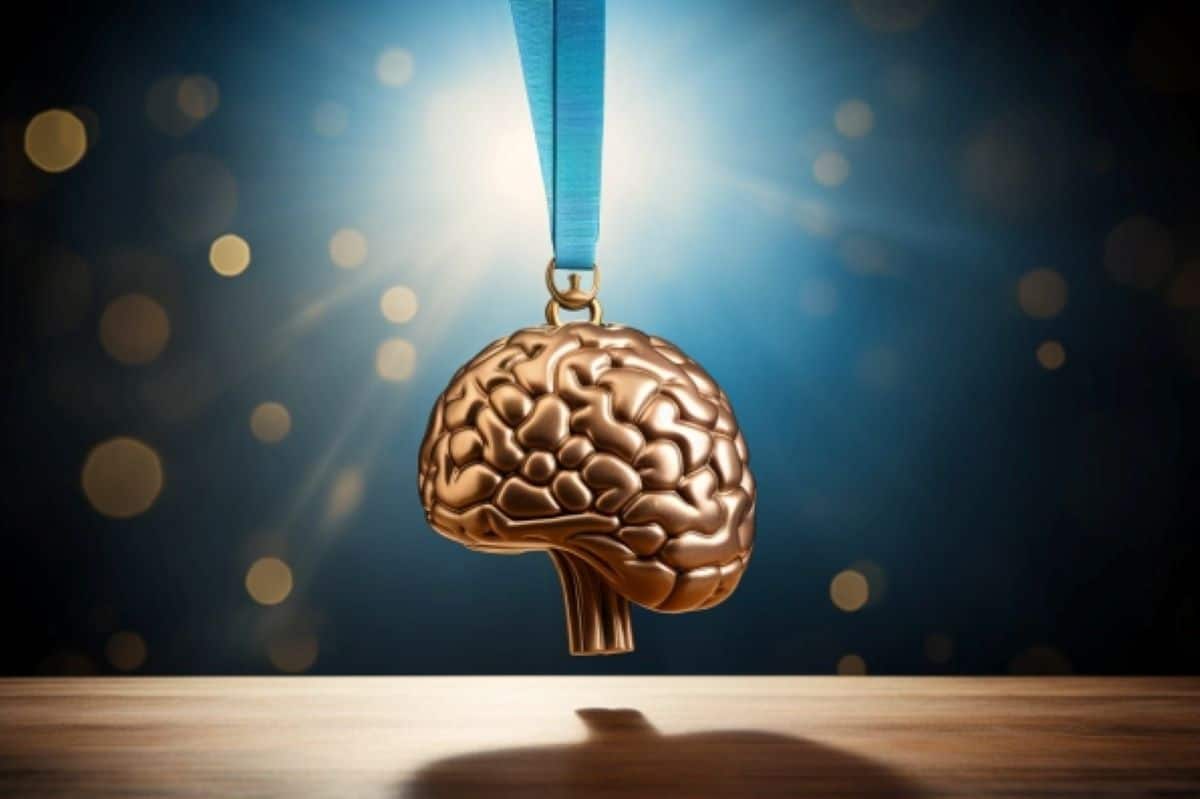Summary: Dopamine, a neurotransmitter, plays a vital role in encoding both reward and punishment prediction errors in the human brain.
This study suggests that dopamine is essential for learning from both positive and negative experiences, enabling the brain to adapt behavior based on outcomes. Using electrochemical techniques and machine learning, scientists measured dopamine levels in real-time during a computer game involving rewards and penalties.
The findings shed light on the intricate role of dopamine in human behavior and could have implications for understanding psychiatric and neurological disorders.
Key Facts:
- Dopamine serves as a neurotransmitter in the brain, facilitating communication between nerve cells and playing a role in movement, cognition, and learning.
- This study is the first to investigate how dopamine encodes rewards and punishments in the human brain on fast timescales.
- Understanding dopamine’s role in both rewarding and punishing experiences may provide insights into psychiatric and neurological disorders.
Source: Wake Forest Baptist Medical Center
What happens in the human brain when we learn from positive and negative experiences? To help answer that question and better understand decision-making and human behavior, scientists are studying dopamine.
Dopamine is a neurotransmitter produced in the brain that serves as a chemical messenger, facilitating communication between nerve cells in the brain and the body. It is involved in functions such as movement, cognition and learning. While dopamine is most known for its association with positive emotions, scientists are also exploring its role in negative experiences.
Now, a new study from researchers at Wake Forest University School of Medicine published Dec. 1 in Science Advances shows that dopamine release in the human brain plays a crucial role in encoding both reward and punishment prediction errors.
This means that dopamine is involved in the process of learning from both positive and negative experiences, allowing the brain to adjust and adapt its behavior based on the outcomes of these experiences.
“Previously, research has shown that dopamine plays an important role in how animals learn from ‘rewarding’ (and possibly ‘punishing’) experiences. But, little work has been done to directly assess what dopamine does on fast timescales in the human brain,” said Kenneth T. Kishida, Ph.D., associate professor of physiology and pharmacology and neurosurgery at Wake Forest University School of Medicine.
“This is the first study in humans to examine how dopamine encodes rewards and punishments and whether dopamine reflects an ‘optimal’ teaching signal that is used in today’s most advanced artificial intelligence research.”
For the study, researchers on Kishida’s team utilized fast-scan cyclic voltammetry, an electrochemical technique, paired with machine learning, to detect and measure dopamine levels in real-time (i.e., 10 measurements per second). However, this method is challenging and can only be performed during invasive procedures such as deep-brain stimulation (DBS) brain surgery.
DBS is commonly employed to treat conditions such as Parkinson’s disease, essential tremor, obsessive-compulsive disorder and epilepsy.
Kishida’s team collaborated with Atrium Health Wake Forest Baptist neurosurgeons Stephen B. Tatter, M.D., and Adrian W. Laxton, M.D., who are also both faculty members in the Department of Neurosurgery at Wake Forest University School of Medicine, to insert a carbon fiber microelectrode deep into the brain of three participants at Atrium Health Wake Forest Baptist Medical Center who were scheduled to receive DBS to treat essential tremor.
While the participants were awake in the operating room, they played a simple computer game. As they played the game, dopamine measurements were taken in the striatum, a part of the brain that is important for cognition, decision-making, and coordinated movements.
During the game, participants’ choices were either rewarded or punished with real monetary gains or losses. The game was divided into three stages in which participants learned from positive or negative feedback to make choices that maximized rewards and minimized penalties. Dopamine levels were measured continuously, once every 100 milliseconds, throughout each of the three stages of the game.
“We found that dopamine not only plays a role in signaling both positive and negative experiences in the brain, but it seems to do so in a way that is optimal when trying to learn from those outcomes. What was also interesting, is that it seems like there may be independent pathways in the brain that separately engage the dopamine system for rewarding versus punishing experiences.
“Our results reveal a surprising result that these two pathways may encode rewarding and punishing experiences on slightly shifted timescales separated by only 200 to 400 milliseconds in time,” Kishida said.
Kishida believes that this level of understanding may lead to a better understanding of how the dopamine system is affected in humans with psychiatric and neurological disorders. Kishida said additional research is needed to understand how dopamine signaling is altered in psychiatric and neurological disorders.
“Traditionally, dopamine is often referred to as ‘the pleasure neurotransmitter,”‘ Kishida said.
“However, our work provides evidence that this is not the way to think about dopamine. Instead, dopamine is a crucial part of a sophisticated system that teaches our brain and guides our behavior.
“That dopamine is also involved in teaching our brain about punishing experiences is an important discovery and may provide new directions in research to help us better understand the mechanisms underlying depression, addiction, and related psychiatric and neurological disorders.”
About this dopamine and learning research news
Author: Kenneth T. Kishida
Source: Wake Forest Baptist Medical Center
Contact: Kenneth T. Kishida – Wake Forest Baptist Medical Center
Image: The image is credited to Neuroscience News
Original Research: Open access.
“Sub-second fluctuations in extracellular dopamine encode reward and punishment prediction errors in humans” by Paul Sands et al. Science Advances
Abstract
Sub-second fluctuations in extracellular dopamine encode reward and punishment prediction errors in humans
In the mammalian brain, midbrain dopamine neuron activity is hypothesized to encode reward prediction errors that promote learning and guide behavior by causing rapid changes in dopamine levels in target brain regions.
This hypothesis (and alternatives regarding dopamine’s role in punishment-learning) has limited direct evidence in humans. We report intracranial, subsecond measurements of dopamine release in human striatum measured, while volunteers (i.e., patients undergoing deep brain stimulation surgery) performed a probabilistic reward and punishment learning choice task designed to test whether dopamine release encodes only reward prediction errors or whether dopamine release may also encode adaptive punishment learning signals.
Results demonstrate that extracellular dopamine levels can encode both reward and punishment prediction errors within distinct time intervals via independent valence-specific pathways in the human brain.

Sarah Carter is a health and wellness expert residing in the UK. With a background in healthcare, she offers evidence-based advice on fitness, nutrition, and mental well-being, promoting healthier living for readers.








